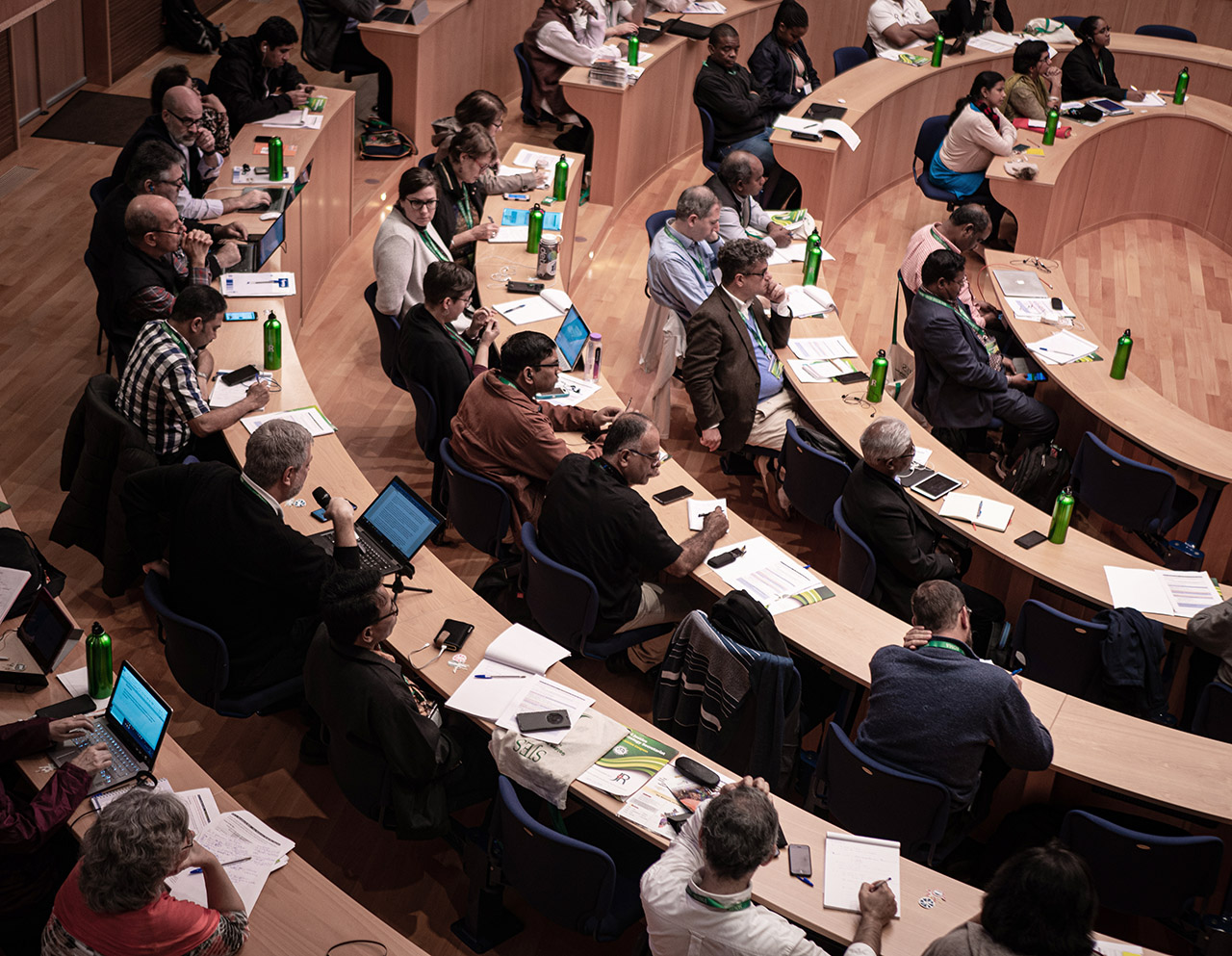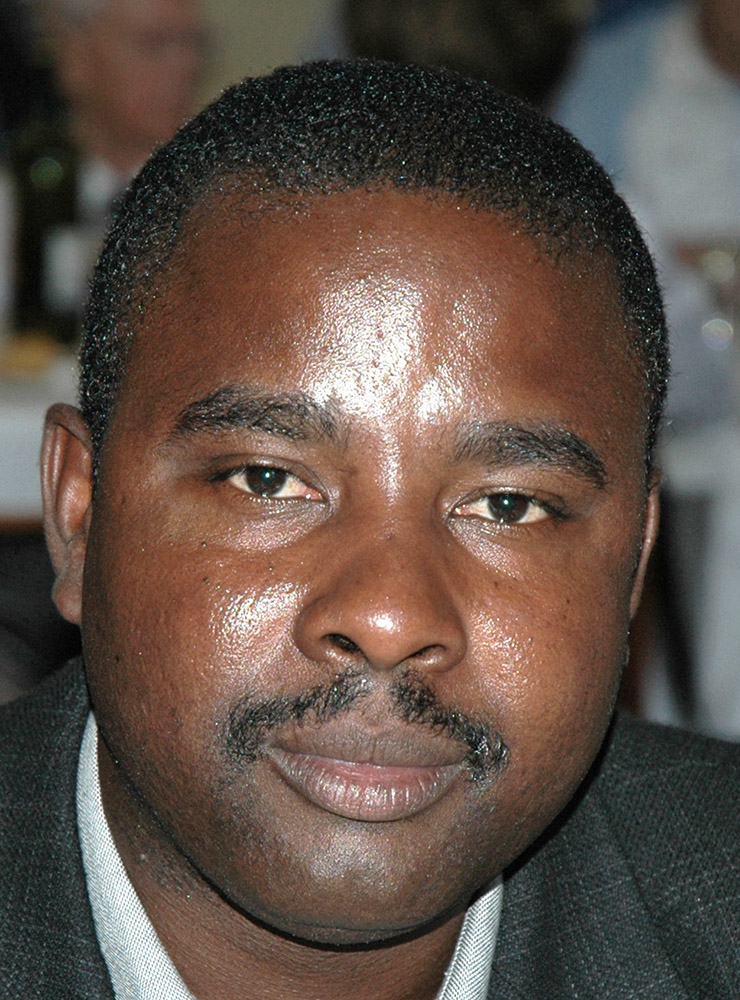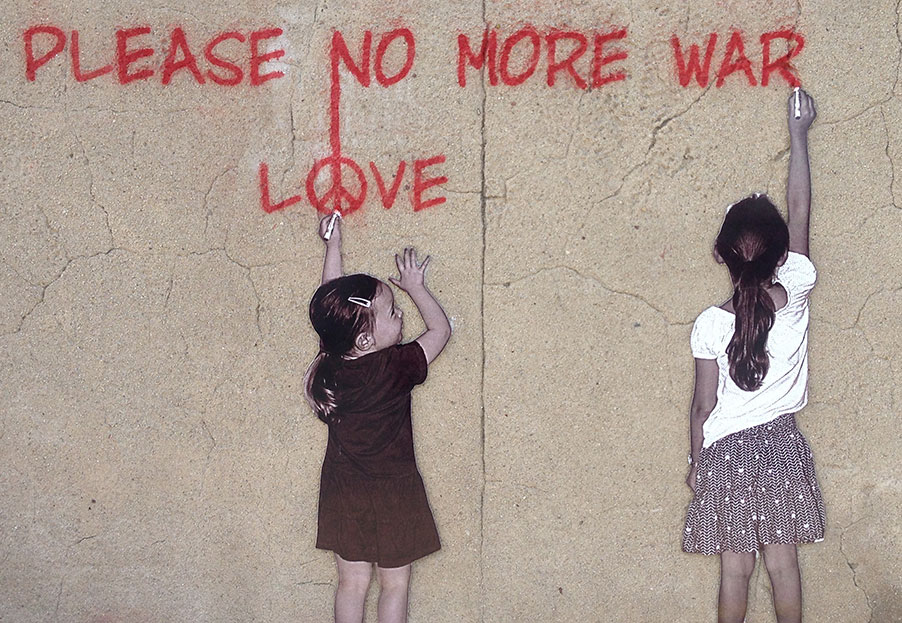The point of view of a Haitian Jesuit: the SJES Congress as a source of energy and hope

Ambroise Dorino Gabriel is a Haitian Jesuit who is completing a thesis in anthropology at Laval University in Quebec City. He was the only representative of Haiti at the SJES 50th Anniversary Congress. Here is his testimony.
On my way to Rome, I was skeptical and critical. I thought to myself: here is another celebration to swell our ego and justify our helplessness. I was comforted by the idea that I would enjoy as a tourist. But I was surprised! It was not a question of presenting our major projects and apostolic activities, and there was no “Tour of Rome”.
The work was intensive: both energizing and a source of hope.
It was about becoming aware of what characterized us as apostles of social and political issues. To do so, we had to return to our “principle and foundation”, to go back to our tradition and let ourselves be guided by the founding fathers, witnesses and martyrs. We have discovered that social and political involvement for the ecological transformation of the world is none other than the fruit of the moving encounter with the wounded, humiliated, persecuted and crucified Christ.
This congress of the social apostolate, like any deep human intuition, requires a great deal of time for it to be assimilated and to take concrete form in reality. But this does not mean that we should not already be in tune with the values it promotes. In the limited context of this article, I have only two points that seem essential to me for Haiti and for our Province of Canada-Haiti.

Deep conversion or the mystical aspect of the social apostolate. Going with the poor implies that we let ourselves be touched by them. To experience wounded humanity is to enter into a healing process that makes us discover our own poverty, to assume it, to carry it. An honest experience of this wounded humanity isn't a romanticized relationship or personal friendship with poor people that releases us from responsibility to alleviate actual suffering, but rather a call to make a concrete commitment to work towards profound transformation of the conditions of the impoverished.
Concrete and sincere commitment to save the planet and liberate peoples requires humility and radicalism. Humility is the awareness that this mission is beyond us. Recognizing our limitations is the condition for being able to open ourselves to collaboration and networking with others ad intra and ad extra. It also requires us to get to the root of the problems. This requires a capacity for in-depth intellectual analysis of the causes of poverty in the world to support radical actions aimed at bringing about real and lasting change for the benefit of our “common home” through the full liberation of the poor.
The Society of Jesus in Haiti has the advantage of being in a structuring phase. This is an opportunity for her to take ownership of the main guidelines of this congress. And then to allow herself to be nourished by the conviction that the option of walking concretely alongside the excluded Haitians, who are the vast majority of the people, in my opinion, is the most radical call at the moment in Haiti and in my Jesuit Province. It implies a total “disruption” in our lifestyle and in our apostolic options.







